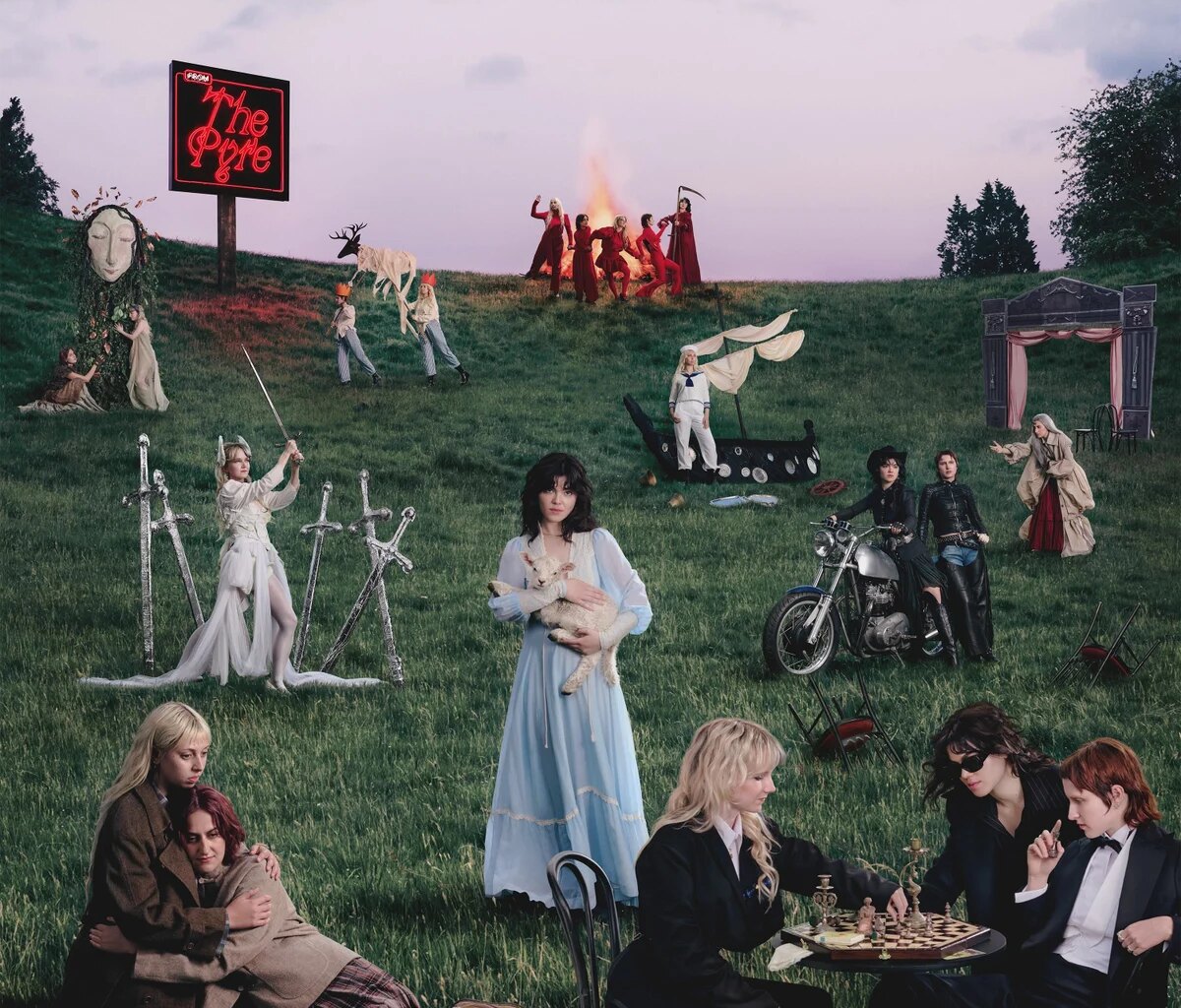From the Pyre perhaps peddles slightly less in the meta than the band’s 2024 debut, Prelude to Ecstasy, though slightly is an apt qualifier. While Prelude might feature thicker arrangements and traffic more in classic pathos, with Pyre, TLDP are as sublime and theatrical as ever.
Love, heartbreak, deception, necromancy, passion that leads to fulfillment (transformation), and passion that leads to devastation (hubris): the epic themes are present. The instrumentation, as mentioned, is perhaps slightly tamed, the band’s everything-and-the-kitchen sink impulses somewhat corralled, but make no mistake: Pyre is high drama.
And, as we know, high drama can be spellbinding yet exhausting, adrenalizing yet schticky, and entertaining yet cumulatively tedious. Fortunately, TLDP are sufficiently versed in composition, songcraft, and vocal modulation to land mostly on the former of each pair. On “Agnus Dei”, for example, melodic guitars wind through the verses and choruses. Abigail Morris’s vocal could work equally well on Broadway or a Las Vegas stage, as she elegizes the beguiling nature of love (“One kiss and I was disemboweled”).
With “Count the Ways”, Morris again explores the storminess of romance (“You break into my house / I break into your house”). Contrasting garage-y riffs with elegant strings and sustained vocal lines, the band commingle the hyper-real and the abstract. While TLDP certainly owe a debt to Kate Bush, Queen, and even Lady Gaga, they successfully craft their own signature rock-and-pop amalgams, finding distinct ways to illustrate the tensions inherent to love and attraction.
“This Is the Killer Speaking” is built around a choppy
guitar part and straightforward drumbeats. Who, we wonder, is the
killer? Unsurprisingly, this character is chameleonic, representing at
once the Western world, the lover, and oneself. The track accentuates
TLDP’s view of the relational as adversarial. The song recalls
Christopher Shipman’s riveting prose-poem collection The Movie My Murderer Makes, in which “the murderer” is alternately a twin, a stranger, a cosmic stalker, and a part of the narrator’s own personality.
“Woman Is a Tree” underscores the band’s knack for creating
mythic tableaux. A lightly picked acoustic guitar interweaves with
restrained synths. The lead vocal is textured by ethereal supporting
voices, conjuring the “witch scene” from Macbeth. “I Hold Your Anger”, meanwhile, includes a saloon-ish piano part a la Westworld,
a steamy vocal, and images that point to suffering and metamorphosis.
Morris embraces the role of the protective lover or maternal figure,
though like Medea (or Martha Rosler on 1975’s “Semiotics of the Kitchen”), these caring instincts are tinged with volatility (“I’m not sure whose knife I carry”).
If most of Pyre points to a vision of life and
love as tumultuous, the spacious and austere “The Scythe” shows the band
at their more stoic. “Don’t cry, we’re bound together / Each life runs
its course”, Morris belts, acknowledging the impermanence of all
phenomena and experiences. Closer “Inferno” is a folk-rock jewel built
around chugging drums and sinewy guitars, Morris striking a balance
between buoyancy and bravado.
With Pyre, The Last Dinner Party continue to display their
attunement to instrumental dynamics. Mega themes are grounded via
Morris’s confessional stance and first-person narratives. Also, the set
brims with hooks. That is, a listener remains engrossed pretty much
throughout the sequence. Pyre, like/perhaps slightly more than Prelude, is fiercely ambitious, gloriously messy, and wickedly entrancing.

